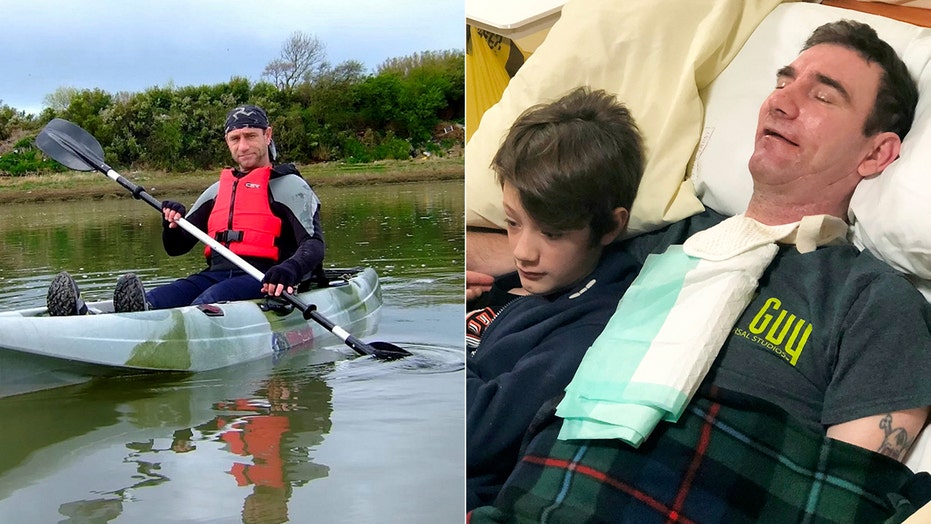

Fox News Flash top headlines for May 10
Fox News Flash top headlines for May 10 are here. Check out what’s clicking on Foxnews.com
A 50-year-old man left paralyzed from a devastating stroke is completely aware of the environment around him, but can no longer eat, talk or move after the episode triggered a rare syndrome that leaves patients feeling “buried alive.”
“We are absolutely heartbroken,” Shannon Leith, one of Darren Leith’s three children, told SWNS. “He is paralyzed and can’t talk at all. It’s incurable. It’s likely he will be like this forever.”
Darren Leith, a painter from Cumbria, England, suffered the stroke in April 2017. He was placed in a coma and when he woke, was in a hellish nightmare. He was diagnosed with locked-in syndrome, a rare neurological disorder which causes complete paralysis over all voluntary muscles except for the ones that control the eyes, according to the National Organization for Rare Disorders (NORD). Patients with the disorder are conscious and awake but have no ability to produce movements aside from the eyes. Cognitive function is unaffected, and patients are fully alert and aware of their surroundings.

His family said that Dareen Leith, pictured left before the stroke and right with his youngest child, has used his eyes to spell out "take me home."
(SWNS)
“I was in complete denial,” Shannon Leith told SWNS. “It was just awful to be told that. We were told it is incurable and dad will be like this forever. I struggled to cope to begin with. It was absolutely horrible. I laid in bed and just tried to imagine what it would be like for him. It must be a living nightmare. It’s like being buried alive.”
Leith has been in a neurorehabilitation center over 100 miles away from his family. Shannon said the last time she went to go see him he spelled out “take me home,” using his eyes to point to letters on a board.
“He is so depressed and wants to be at home,” she said. “It would be a dream for us. The last two years have been a living nightmare.”
The family has been raising funds to pay for care at their home.
“All we want is for him to be happy. The most important thing for us is to make sure his life can be a little bit better.”
Source: Read Full Article